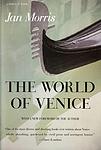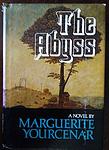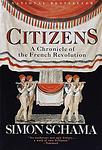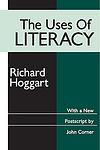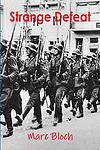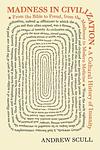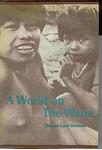The Greatest French, British "European History" Books of All Time
Click to learn how this list is calculated.
This list represents a comprehensive and trusted collection of the greatest books. Developed through a specialized algorithm, it brings together 301 'best of' book lists to form a definitive guide to the world's most acclaimed books. For those interested in how these books are chosen, additional details can be found on the rankings page.
Genres
European History is a category of books that focuses on the historical events, people, and cultures of Europe. It covers a wide range of topics, including the ancient civilizations of Greece and Rome, the Middle Ages, the Renaissance, the Enlightenment, and the modern era. This category of books explores the political, social, economic, and cultural developments that have shaped Europe over the centuries, from the rise and fall of empires to the impact of wars and revolutions. It provides readers with a deeper understanding of the rich and complex history of Europe and its influence on the world.
Countries
Date Range
Reading Statistics
Click the button below to see how many of these books you've read!
Download
If you're interested in downloading this list as a CSV file for use in a spreadsheet application, you can easily do so by clicking the button below. Please note that to ensure a manageable file size and faster download, the CSV will include details for only the first 500 books.
Download-
1. Essays by Michel de Montaigne
This collection of essays explores a wide range of topics such as solitude, cannibals, the power of the imagination, the education of children, and the nature of friendship. The author employs a unique and personal approach to philosophy, using anecdotes and personal reflections to illustrate his points. The essays provide a profound insight into human nature and condition, and are considered a significant contribution to both literature and philosophy.
The 110th Greatest Book of All Time -
2. Homage to Catalonia by George Orwell
The book is a personal account of the author's experiences during the Spanish Civil War, specifically his time with the POUM (Partit Obrer d'Unificació Marxista) militia in Catalonia. He provides an in-depth look at the social revolution that took place, the daily life of a soldier, the political infighting and betrayals among the Republican factions, and his eventual disillusionment with the cause he initially supported. The book is both a war memoir and a detailed analysis of a complex political situation.
The 356th Greatest Book of All Time -
3. Black Lamb and Grey Falcon by Rebecca West
"Black Lamb and Grey Falcon" is a comprehensive and detailed travelogue of Yugoslavia, penned by a British author during the brink of World War II. The book beautifully interweaves history, politics, culture, and personal experiences to paint a vivid picture of the Balkan region. It also serves as a profound reflection on the impending war and the author's concerns about the rise of fascism in Europe, making it not just a travel book but also an essential historical document.
The 376th Greatest Book of All Time -
4. The Making of the English Working Class by E. P. Thompson
This book is a comprehensive historical analysis of the formation of the English working class from the late 18th century to the mid-19th century. The author meticulously examines various aspects of society including the Industrial Revolution, the rise of Methodism, and political movements, arguing that the working class was not a byproduct of economic factors alone, but was actively self-formed through struggles over issues like workers' rights and political representation. The book is widely regarded as a seminal text in social history due to its focus on the experiences and agency of ordinary people.
The 546th Greatest Book of All Time -
5. The Second World War by Winston Churchill
This book provides a comprehensive overview of the Second World War from the perspective of one of its most influential leaders. It covers the entire span of the war, from its origins in the political and economic turmoil of the 1930s, to the major battles and strategic decisions that shaped its course, to its aftermath and impact on the world. The author's unique perspective and firsthand experience, combined with his eloquent and insightful writing, make this a definitive account of one of the most important events in modern history.
The 551st Greatest Book of All Time -
6. Rights of Man by Thomas Paine
This influential work is a passionate defense of the French Revolution and a detailed examination of the concept of human rights. The author argues against the idea of monarchy and hereditary succession, contending that government should be a reflection of the people's will and that it should promote equality and social welfare. The book also explores the role of government in society, the nature of civil liberties, and the importance of a written constitution.
The 960th Greatest Book of All Time -
7. A Study of History by Arnold J. Toynbee
"A Study of History" is an extensive 12-volume universal history, exploring the development and decay of world civilizations throughout the ages. The author proposes that civilizations rise and fall based on their responses to challenges, both physical and social. The book also puts forth the idea that religions play a crucial role in the rise of civilizations and that the failure of a civilization's creative power can lead to its decline. The work is renowned for its scholarly depth and its controversial theories about the cyclical nature of history.
The 980th Greatest Book of All Time -
8. A Time Of Gifts by Patrick Leigh Fermor
The book is a vivid memoir that chronicles the adventures of a young man as he embarks on a remarkable journey on foot across Europe in the 1930s. Starting from the Hook of Holland, he traverses through landscapes and cities, encountering a diverse tapestry of cultures, languages, and historical remnants. Along the way, he is welcomed by a variety of individuals, from aristocrats to peasants, who enrich his experience with their stories and hospitality. His travels provide not only a physical journey through the continent but also a journey through time, as he reflects on the complexities of Europe's past and the ominous shadows cast by the approaching Second World War.
The 1117th Greatest Book of All Time -
9. The Mediterranean And The Mediterranean World In The Age Of Philip Ii by Fernand Braudel
This seminal work offers a comprehensive analysis of the Mediterranean region during the 16th century, focusing on the complex social, political, and economic landscapes that defined the era of Philip II of Spain. The book transcends traditional historiography by emphasizing the geographical and ecological factors that shaped human activity, from the ebb and flow of commerce and the patterns of agrarian life to the rise and fall of empires. Through a meticulous study of the Mediterranean world, the narrative weaves together the intricate tapestry of cultures, religions, and power dynamics that characterized the period, providing a vivid portrayal of the enduring influence of the environment on the course of human history.
The 1122nd Greatest Book of All Time -
10. Venice by Jan Morris
This book provides an in-depth exploration of the city of Venice, delving into its history, culture, architecture, and its unique geographical attributes. It paints a vivid picture of the city in its glory days, as well as its present state, with all its beauty and decay. The author's personal experiences and observations are woven into the narrative, offering readers an intimate and engaging tour of the city. The book also discusses the city's influence on art, literature, and music, and its enduring allure for travelers from around the world.
The 1160th Greatest Book of All Time -
11. Émile by Jean-Jacques Rousseau
The book in question is a seminal work in the field of education and philosophy, presenting a comprehensive treatise on the nature of man and the importance of education tailored to the individual's developmental stages. The author argues for a system of education that allows for the natural development of a child's abilities and senses, advocating for learning through experience rather than traditional academic instruction. The narrative follows the growth of a fictional boy, illustrating the author's educational philosophy through his upbringing, which emphasizes moral and emotional development alongside intellectual growth. The work challenges conventional notions of education and has had a profound impact on modern educational theory.
The 1351st Greatest Book of All Time -
12. Alan Turing by Andrew Hodges
This biography provides a comprehensive look at the life and work of a pioneering computer scientist and mathematician who played a crucial role in breaking the Enigma code during World War II. It delves into his groundbreaking contributions to the development of computer science, his tragic prosecution for homosexuality, and his enduring legacy in the field of artificial intelligence and computing. The book not only celebrates his scientific achievements but also examines the social context of his time, shedding light on the challenges he faced and the impact of his work on future generations.
The 1628th Greatest Book of All Time -
13. Studies In The History Of The Renaissance by Walter Pater
This book is a seminal work of criticism that explores the art, literature, and culture of the Renaissance period. It delves into the aesthetic and philosophical spirit of the era, examining the unique qualities that define Renaissance art and thought. The author's rich prose and contemplative approach emphasize the importance of beauty and the sensory experiences of life, advocating for an appreciation of art as an end in itself. Through a series of essays, the work reflects on the works of various Renaissance figures and the enduring impact of this period on the modern consciousness, ultimately encouraging readers to seek out intense experiences and to cherish the transient beauty in the world around them.
The 1757th Greatest Book of All Time -
14. Letters On England by Voltaire
The book is a series of essays written in the form of letters that offer a critical examination of various aspects of English society, including its politics, religion, and culture, during the early 18th century. The author, a prominent Enlightenment thinker, contrasts the relative freedom and tolerance he observes in England with the more rigid and hierarchical society of his native country. Through his observations, he praises the English constitutional monarchy, the country's scientific achievements, and its respect for individual liberties, while also reflecting on the nature of trade, the role of the press, and the philosophies of notable English figures. The work is notable for its advocacy of religious tolerance and freedom of thought, and it played a significant role in promoting English ideas to a Continental audience.
The 1891st Greatest Book of All Time -
15. The Abyss by Marguerite Yourcenar
"The Abyss" is a historical novel set in the 16th century that follows the life of Zeno, a physician, philosopher, and scientist. The narrative explores Zeno's journey from his birth in Bruges to his travels across Europe, his experiences during the Inquisition, and his ultimate death in Constantinople. The book delves into the intellectual and spiritual challenges of the Renaissance era, providing a profound exploration of the human condition, the quest for knowledge, and the struggle between faith and reason.
The 1999th Greatest Book of All Time -
16. Citizens by Simon Schama
"Citizens" is a detailed and comprehensive exploration of the French Revolution, offering a fresh perspective on the historical event. The book examines the revolution from its earliest beginnings to its aftermath, delving into the causes, key figures, and the immediate and long-term consequences. It provides a vivid and engaging account, highlighting that the revolution was not just a period of bloodshed and turmoil, but also a time of radical political and social change that shaped the course of modern history.
The 2070th Greatest Book of All Time -
17. The Uses of Literacy by Richard Hoggart
"The Uses of Literacy" is a sociological study that explores the impact of mass media and popular culture on traditional working-class values and communities in Britain during the mid-20th century. The author combines personal memoir with scholarly analysis to examine how the spread of American consumer culture and the rise of mass media have influenced British society, especially among the working class. The book serves as a critique of the commercialization of culture and the erosion of authentic, local cultures and traditions.
The 2146th Greatest Book of All Time -
18. Postwar by Tony Judt
"Postwar" is a comprehensive analysis of the history of Europe from the end of World War II to the early 21st century. The book examines the major political, cultural, social, and economic changes that have shaped the continent, including the Cold War, the rise and fall of the Soviet Union, the rebuilding of Western Europe, and the challenges of integrating Eastern Europe into the European Union. It also delves into the impact of these events on the daily lives of Europeans, exploring themes of memory, identity, and the struggle to come to terms with the past.
The 2160th Greatest Book of All Time -
19. The Family, Sex and Marriage in England 1500-1800 by Lawrence Stone
This scholarly work provides an in-depth analysis of the transformation of family life, sexual mores, and marital structures in England from the 16th to the 18th century. It examines the shift from the medieval extended family to the closed domesticated nuclear family, exploring how economic, social, legal, and cultural changes influenced personal relationships and societal norms. The book delves into the roles of love, sex, and marriage during this period, revealing how the evolution of these concepts was intertwined with broader historical developments such as the Protestant Reformation, the rise of individualism, and the changing economic landscape. Through meticulous research, the text presents a comprehensive view of how private life was redefined over three centuries, reflecting the complex interplay between tradition and change in early modern England.
The 2591st Greatest Book of All Time -
20. Strange Defeat by Marc Bloch
"Strange Defeat" is a wartime memoir written by a French historian who served as a soldier during World War II. In the book, the author critically analyzes the reasons behind the swift and shocking fall of France to Germany in 1940. The author attributes the defeat to the outdated strategies and poor leadership of the French military and government, and also highlights the social and political issues that plagued France at the time. The book is not only a personal account but also a profound critique of French society and its institutions.
The 2695th Greatest Book of All Time -
21. The Rise And Fall Of The Great Powers by Paul Kennedy
The book in question offers a comprehensive analysis of the economic and military factors that have shaped the relative power of nations from the 16th century to the late 20th century. It argues that the rise and fall of great powers are closely linked to their ability to manage economic resources and maintain military strength. The author examines the patterns of history to show how the overextension of an empire's resources often leads to decline, and suggests that managing the balance between wealth and power is crucial for the longevity of a great power. The book also provides insights into the potential future of global power dynamics by considering the implications of these historical patterns for contemporary superpowers.
The 2821st Greatest Book of All Time -
22. Cavaliers And Roundheads by Christopher Hibbert
"Cavaliers and Roundheads" is a historical account that delves into the turbulent period of the English Civil War in the 17th century, offering a detailed narrative of the conflict between the Royalists (Cavaliers) and the Parliamentarians (Roundheads). The book provides a comprehensive analysis of the political, religious, and social factors that fueled the war, while also painting vivid portraits of the key figures involved, including King Charles I and Oliver Cromwell. Through meticulous research and engaging storytelling, the work captures the complexities of the era, the brutal battles, and the ultimate transformation of the English monarchy and parliamentary system.
The 3085th Greatest Book of All Time -
23. Madness And Civilization by Michel Foucault
The book is a profound and critical exploration of the history of the treatment of the mentally ill in Western society, tracing the shifting boundaries between madness and sanity from the Middle Ages to the end of the 18th century. The author argues that the way people with mental illness were treated was a reflection of the cultural, social, and intellectual mores of the time. He examines the evolution of institutions such as asylums and the role of medical and philosophical discourse in defining and managing madness, suggesting that the treatment of the mentally ill has often been a way of exerting social control rather than a genuine effort to help those suffering. The work challenges readers to reconsider the relationship between reason, unreason, and the structures of power and knowledge.
The 3269th Greatest Book of All Time -
24. A World On The Wane by Claude Lévi-Strauss
The book is a reflective account of an anthropologist's journey through the Amazon Basin, documenting the lives and customs of indigenous tribes at a time when their traditional ways were increasingly threatened by the encroachment of modern civilization. Through a series of vivid observations and analyses, the author explores the complex social structures, myths, and rituals of these societies, while also contemplating the impact of Western influence on their survival. The narrative serves as both a poignant chronicle of disappearing cultures and a critique of the forces of colonialism and globalization that contribute to the erosion of human diversity and heritage.
The 3269th Greatest Book of All Time -
25. Combats Pour L'histoire by Lucien Febvre
"Combats Pour L'histoire" is a collection of essays by a prominent historian who was a key figure in developing the Annales School of historical thought. In this work, the author passionately argues for a new approach to studying history, one that moves beyond the traditional focus on political events and great men to include a broader analysis of social and economic factors, mentalities, and the structures that shape human activity over time. The book emphasizes the importance of interdisciplinary research, incorporating insights from geography, sociology, and anthropology to create a more nuanced and dynamic understanding of the past. The author's advocacy for this methodological shift has had a lasting impact on the field of history, encouraging generations of scholars to explore the complex interplay of forces that influence historical change.
The 3269th Greatest Book of All Time
Reading Statistics
Click the button below to see how many of these books you've read!
Download
If you're interested in downloading this list as a CSV file for use in a spreadsheet application, you can easily do so by clicking the button below. Please note that to ensure a manageable file size and faster download, the CSV will include details for only the first 500 books.
Download








